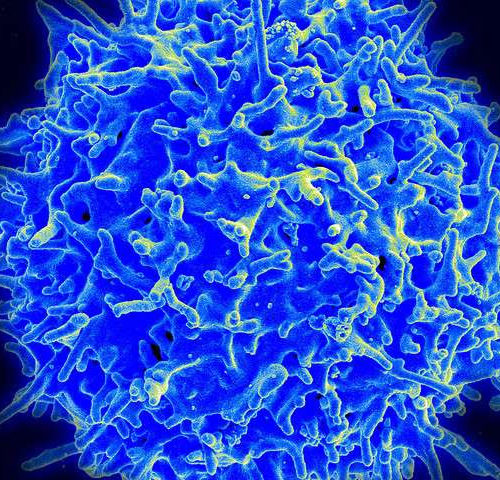by Frontiers Cytokine storms may affect the severity of COVID-19 cases by lowering T cell counts, according to a new study published in Frontiers in Immunology. Researchers studying coronavirus cases in China found that sick patients had a significantly low number of T cells, a type of white blood cell that plays a crucial role...
Tag: <span>inflammatory</span>
Higher manganese intake may be tied to lower type 2 diabetes risk
Jung Ho Gong, from Brown University in Providence, Rhode Island, and colleagues evaluated the association between manganese intake and the risk for type 2 diabetes in 84,285 postmenopausal women without a history of diabetes participating in the national Women’s Health Initiative Observational Study (WHI-OS). Results were validated in the 62,338 women who participated in the...
Using the CellAge Database to Find Genes Associated with Inhibition of Cellular Senescence
A senescent cell ceases replication and secretes inflammatory and pro-growth signals. The process serves a useful function when such cells are present for a short time and then destroyed, aiding in suppression of cancer and in wound healing. When senescent cells linger, they cause chronic inflammation and significant disruption to tissue function, however. This is...
1 PROTEIN MAY SHIELD WOMEN FROM HERPES ‘NEUROINVASION’
A pro-inflammatory protein could play an important part in improving current and future therapeutics for the herpes virus, according to new research. Researchers investigated whether the protein IL-36g is an essential component of the immune response to a herpes infection, or if other mechanisms can compensate for a lack of it. Cytokines, proteins essential to...
The right dose to the right person
This news or article is intended for readers with certain scientific or professional knowledge in the field. Malin Lindqvist Appell is working to develop tools to tailor the treatment of leukaemia and inflammatory bowel disease. Serious adverse drug reactions can now be avoided using a blood sample to determine who can take a lower dose of a...
Study: Some biologic treatments for psoriasis may be safer for patients
by Beth Israel Deaconess Medical Center A common chronic skin condition affecting 125 million people worldwide, psoriasis is an autoimmune disease, a class of disorders in which the immune system attacks the body’s own healthy cells. In recent years, new medications—known as biologics—that inhibit the overactive immune system by targeting specific inflammatory pathways, have revolutionized the treatment of psoriasis and...
Cancer cells steer a jagged path
Rice, Duke researchers define a small protein’s central role in tumor mechanics RICE UNIVERSITY A jagged little protein appears to be key to how cancer stem cells differentiate and enable metastasis, according to researchers at Rice University and the Duke University School of Medicine. IMAGE: RICE UNIVERSITY RESEARCHERS, FROM LEFT, JOSÉ ONUCHIC, HERBERT LEVINE AND...
Treating inflammatory bowel disorder by delivering microRNAs
Osaka University researchers deliver microRNAs to suppress inflammatory reaction to affected areas in patients with inflammatory bowel disorder OSAKA UNIVERSITY Inflammatory bowel disease (IBD), such as Crohn disease and ulcerative colitis, are chronic inflammatory diseases of unknown cause, and the number of IBD patients is on the rise. IMAGE: MIR-29 LOADED ON A SUPERCARBONATE APATITE PREVENTS THE DEVELOPMENT...
Human immune ‘trigger’ map paves way for better treatments
A discovery about how human cells are ‘triggered’ to undergo an inflammatory type of cell death could have implications for treating cancer, stroke and tissue injury, and immune disorders. IMAGE: A DISCOVERY ABOUT HOW HUMAN CELLS ARE 'TRIGGERED' TO UNDERGO AN INFLAMMATORY TYPE OF CELL DEATH COULD HAVE IMPLICATIONS FOR TREATING CANCER, STROKE AND TISSUE INJURY,...
Restricting unwanted immune reactions
Researchers at the University of Münster (Germany) have decoded a mechanism found at the beginning of many inflammatory processes: a new approach to the development of anti-inflammatory treatment options IMAGE: BINDING MODEL: THE S100A8/S100A9 PROTEIN COMPLEX (GREY/BEIGE) BINDS TO THE TLR4 RECEPTOR (RAINBOW-COLOURED) AND MD2 (RED) AND TRIGGERS IMMUNE REACTIONS IN CELLS. BLOCKING THIS INTERACTION IS A...


